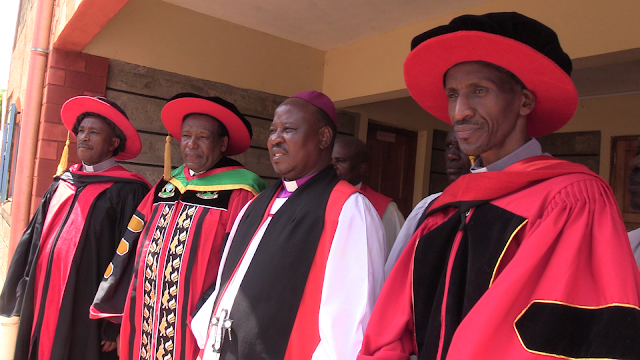Tobacco farming still popular in parts of Mbeere
BY JOEY KIMEU
For several decades, tobacco was a popular cash
crop for many farmers in Mbeere North sub-county of Embu County.
They would sell their produce to the British
American Tobacco (BAT), which had contracted them.
From the proceeds, they were able to educate their children,
build permanent houses, buy property and do other home developments.
This changed when BAT exited the
Embu tobacco market and many farmers who were left without a reliable
market for their produce switched the crop for miraa or horticultural farming.
However, a handful of farmers held on
to tobacco cultivation and have no regrets for farming the
controversial crop.
Mzee Severino Thitima from Gatituri village
grows tobacco in an acre of land, which yields an average of 500kgs
per season.
He sells it at Sh300 per kilogram at the local market and
thus pockets Sh150,000.
The crop takes six months to grow and mature, from the
nursery to the time it is harvested.
Thitima has been a tobacco farmer since 1969 when
the crop was introduced in the area.
He says the crop is more profitable compared to others that
are grown in the area such as maize and beans.
“Tobacco has been my cash crop for many years. Even
after BAT stopped buying from us, I have soldiered on and I’m not stopping any
time soon. Since many farmers have stopped growing tobacco, its price has
been on rise due to low supply,” he says.
Charles Kinyua, another farmer, echoes same sentiments,
adding that tobacco has a variety of uses making its marketing easy.
“Tobacco is mainly viewed as only for smoking and
sniffing but it is also used by farmers to fight pests such as Fall Armyworm
and to spray animals as it kills ticks,” he says.
In fact, farmers in the upper parts of Embu County that
produce a lot of maize mix tobacco with ash and red pepper to kill
Fall Armyworm and other pests.
The concoction has been working, according to groups of
farmers that this writer interviewed for another story last year.
Kinyua says they sell the tobacco in the local
markets or to brokers who ferry it to other counties such as Meru and Garissa.
Tobacco farmers in Embu face the challenge of water
shortage and expensive inputs such as manure and fertilizer.
According to Thitima, the crop requires good rainfall to
thrive and plenty of manure to develop that characteristic bitter taste the
consumers enjoy.
“We appeal to the government to
support tobacco farmers by providing us with irrigation water and
subsidising farm inputs,” says Thitima.
World Health Organisation (WHO) and other international
organisations have been working to get farmers to limit and eventually stop
growing tobacco.
They cite the numerous health problems associated with the
crop. Tobacco is used in the manufacture of cigarettes, which cause
cancer and other ailments.



Comments
Post a Comment